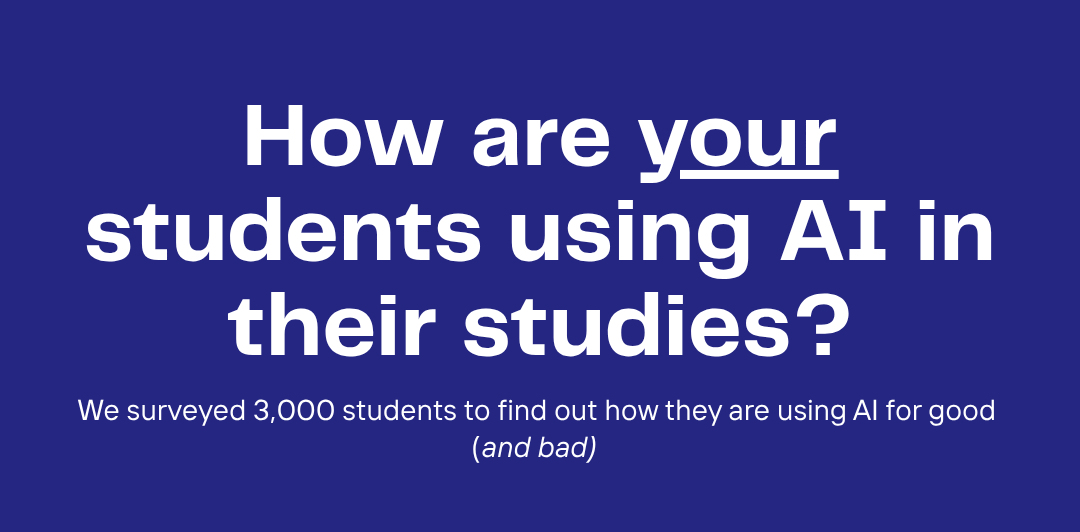How Students Are Really Using AI in 2025 – Insights from 3,000 High School Students
Written by John Varvarigos, Chief Operating Officer, Elevate Education
Regardless of whether you see AI as the dawn of a new era or the beginning of academic Armageddon, one fact is undeniable: students are already using it, and they’re using it a lot.
In Elevate Education’s recent survey of over 3,000 Australian high school students, we found that the overwhelming majority are incorporating AI into their study routines. But the bigger question is: how are they using it — and are they using it responsibly?
AI Use Is Now the Norm
Three-quarters of students told us they use AI at least a few times per week, and almost a quarter say they use it every single day.
This shouldn’t be surprising. Today’s students, as true “digital natives,” often feel more comfortable experimenting with AI tools than many adults or teachers do.
Which Tools Are Students Using?
When asked which AI tools they use most, the top spot was no surprise: ChatGPT leads the way, used by 34% of students.
But here’s where it gets interesting: many students listed platforms like YouTube (22%), TikTok (10%), and Instagram (6%) as their “AI tools” of choice. While these platforms use AI in their algorithms, they’re not dedicated AI study tools. This suggests a significant gap in AI literacy — students are using AI without fully understanding what it is.
How Are Students Using AI?
One of the most hotly debated fears in education is that AI will be used to cheat. A recent report claimed 97% of students had used AI to cheat on assignments.
Our findings paint a more nuanced picture. Many students are leveraging AI ethically:
37% use it to get explanations for difficult topics
18% use it for grammar or spelling checks
However, many aren't using it ethically at all. In fact, 40% of students admit they’ve used AI to do their homework:
20% use it to write their essays
20% use it to solve maths or science problems for them
Confidence in AI Use Is Surprisingly Low
Despite frequent use, students’ confidence in their AI skills isn’t particularly high.
Only 37% rate themselves as very confident (8 out of 10 or higher), while nearly half rate themselves at 6 or below. This suggests that many are learning through trial and error — which increases the risk of misuse.
Students Want More AI Training
Given their moderate confidence, it’s no surprise that 69% of students want more training on how to use AI effectively.
Specifically:
59% want to know how to use ChatGPT better for study
63% want to learn how to avoid plagiarism when using AI
The latter is especially interesting. While some might see it as students wanting to “get away with” cheating, a more optimistic view is that students want to use AI ethically — they just don’t know how.
The Urgent Need for AI Literacy in Schools
So in conclusion, our data shows:
75% of students are already using AI regularly
Up to 40% are using it in ways that could be considered cheating
Two-thirds don’t know how to avoid plagiarism with AI
Over half can’t correctly identify what is and isn’t an AI tool
The takeaway? AI use among students is widespread, but understanding is shallow. Without proper guidance, students risk misusing it — and missing out on its full potential as a learning tool.
Educators now have a critical role to play: teaching students not just how to use AI, but how to use it ethically, effectively, and with confidence.
At the National Education Summit this year, we’ll be unpacking these findings further and exploring practical strategies for integrating AI literacy into the classroom. If you’re attending, come and join the conversation — the future of AI in education is being shaped right now.
Visit the team from 28 - 29 August 2025 at the Melbourne Convention & Exhibition Centre

